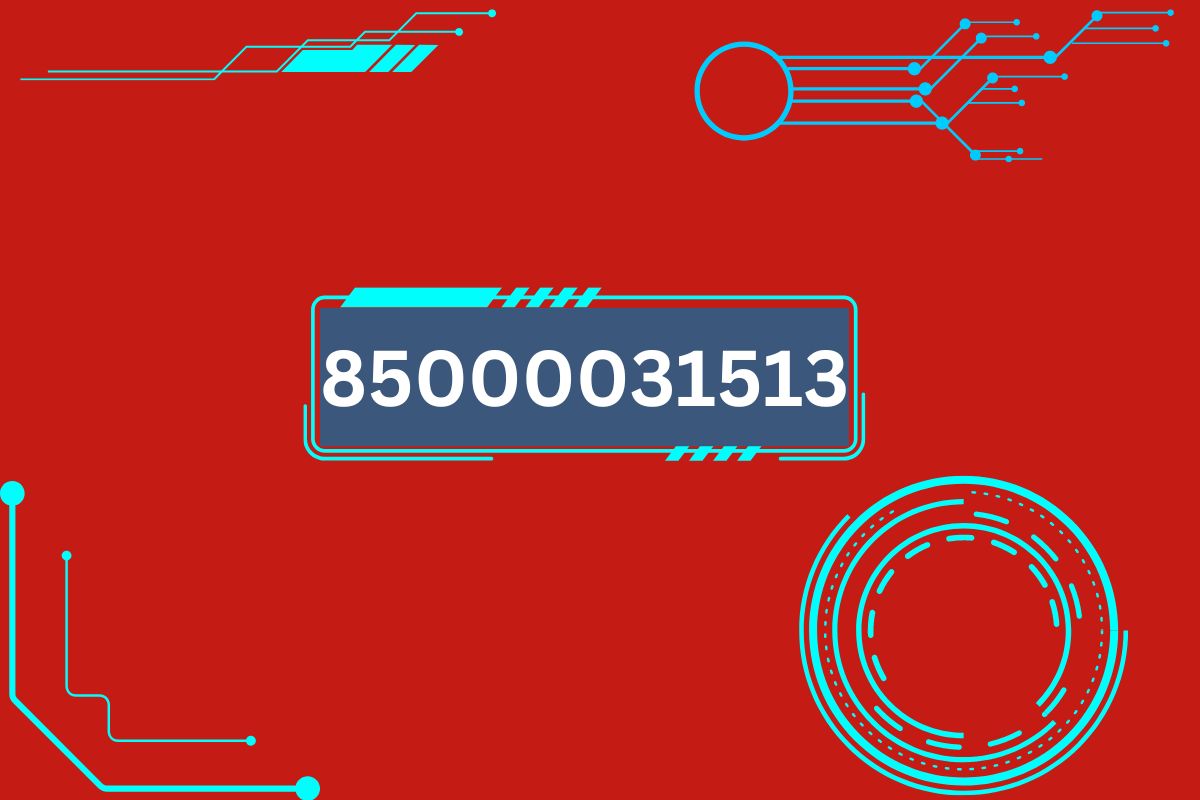In the age of data and digital records, numbers such as “85000031513” represent more than just a string of digits; they are unique identifiers in various systems, each with specific functions and meanings. Identifiers like this may be encountered in databases, financial systems, telecommunications, healthcare, and government records. Understanding these identifiers, their purpose, and their impact on data security is essential in navigating the complexities of modern digital ecosystems.
What Is 85000031513?
The string “85000031513” is likely an identifier, potentially used to track specific items, services, or individuals in a system. Identifiers like this are often assigned based on predefined algorithms to ensure uniqueness. In some instances, identifiers are tied to specific categories, locations, or other relevant data to distinguish them within a larger dataset. Identifiers might be assigned to:
- Telecommunications – tracking SIM cards, phone numbers, or user accounts.
- Healthcare – serving as unique patient IDs or medical record numbers.
- Financial Systems – such as account numbers, transaction identifiers, or insurance IDs.
- Government and Taxation – identifiers in tax records, voter registrations, or social services.
Why Unique Identifiers Matter
In a world filled with millions of transactions and interactions every second, unique identifiers play an essential role. They allow systems to track, manage, and retrieve information accurately and efficiently. Here’s why unique identifiers like 85000031513 are essential:
- Precision: Identifiers ensure there is no ambiguity in identifying an individual or item, critical in fields like healthcare where mistakes can have serious repercussions.
- Efficiency: In large databases, identifiers allow for quick searching and retrieval of specific records.
- Data Integrity: Unique identifiers help maintain consistent records and prevent errors, such as duplicate entries, which can lead to data discrepancies.
Security and Privacy Considerations
With digital systems relying heavily on unique identifiers, privacy and security have become paramount. Identifiers like 85000031513, if tied to sensitive data, must be safeguarded to prevent unauthorized access or misuse. Key security practices include:
- Data Encryption: Encrypting identifiers and associated data ensures that, even if intercepted, the information remains unreadable.
- Access Control: Only authorized personnel should have access to specific identifiers to limit potential misuse.
- Audit Trails: Maintaining logs of when and by whom an identifier was accessed can help monitor and prevent unauthorized activity.
Potential Risks of Identifier Misuse
Identifiers are not inherently secure, as they may be linked to sensitive personal or business information. If an identifier such as 85000031513 were compromised, the implications could be significant:
- Identity Theft: In cases where identifiers link to personal information, they could be exploited for identity theft.
- Unauthorized Access: Malicious actors might use these identifiers to gain unauthorized access to accounts or services.
- Data Breach: In cases where identifiers are stored without sufficient security, they can be a point of vulnerability, leading to data breaches.
Conclusion
As we move further into a data-driven era, unique identifiers like 85000031513 will continue to be integral in structuring and managing information across systems. While they facilitate functionality and accuracy in digital systems, safeguarding these identifiers is critical to protect against misuse and privacy violations.
FAQs
1. What is 85000031513?
- 85000031513 is a unique identifier, likely used in various digital systems such as telecommunications, healthcare, finance, or government databases. Identifiers like this serve to accurately track and manage records or accounts.
2. How are identifiers like 85000031513 created?
- Identifiers are typically generated using algorithms designed to produce unique sequences. They might include specific patterns, random numbers, or data relevant to a category, location, or individual.
3. Where might I encounter an identifier like 85000031513?
- You might come across identifiers in systems for telecommunications (SIM or phone numbers), banking (account numbers), healthcare (patient IDs), or government records (tax IDs or social security numbers).
4. Why are unique identifiers necessary?
- Unique identifiers prevent duplication and ambiguity within databases, ensuring that every record is easily and accurately retrievable. They make large data systems efficient, precise, and maintain data integrity.
5. Is there any sensitive information associated with 85000031513?
- While the identifier itself is just a number, it can be sensitive if linked to personal data or sensitive account information. If not protected, such links could be exploited for unauthorized access or data breaches.
6. What are the privacy implications of unique identifiers?
- Privacy concerns arise when identifiers are linked to personal data. Unauthorized access to these identifiers could lead to identity theft, financial fraud, or other privacy issues. Security measures like encryption are vital to protecting these identifiers.
7. How can I ensure the security of identifiers like 85000031513?
- Security practices include encrypting the identifier, limiting access to authorized personnel only, and maintaining audit trails to track who accesses the identifier and when.
8. What could happen if an identifier like 85000031513 is compromised?
- Compromising an identifier can lead to unauthorized access to associated data, identity theft, or data breaches. This could have significant repercussions, especially if the identifier links to sensitive information.
9. Can I change or reset my identifier?
- This depends on the system and the purpose of the identifier. Some systems allow resets or reassignment (like account numbers), while others are designed to be permanent (like social security numbers).
10. What should I do if I suspect my identifier has been misused?
- Immediately contact the organization that issued the identifier. They may initiate steps to protect your information, such as account lockdown, resetting access credentials, or monitoring for unusual activity.











